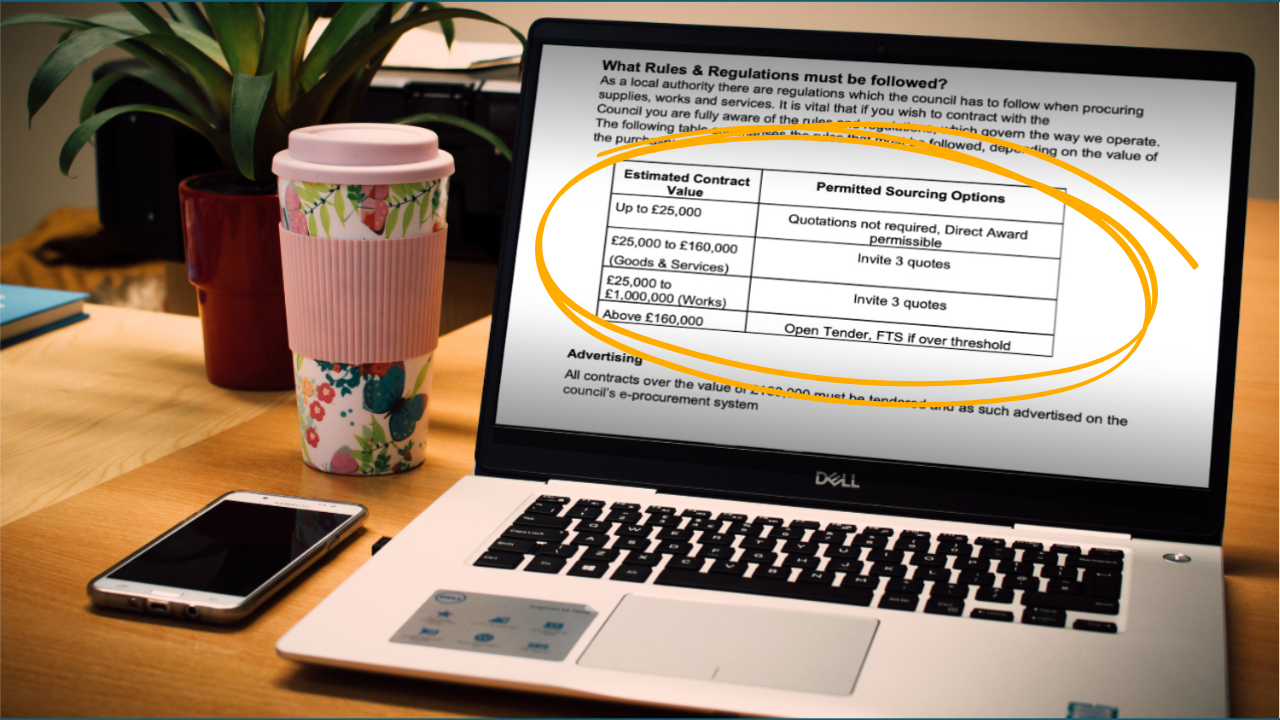Here’s a public sector secret nobody talks about:
You don’t always need to go through a formal tender to win public sector work.
That’s right. There’s a simpler way in, and it’s perfect for small businesses, freelancers, and anyone just starting out.
If you want public sector clients but don’t have the time, resources, or experience for big tenders yet, this is your way in. It’s called a Request for Quote (RFQ.
Not Every Contract Needs a Full Tender
When the public sector needs something “low value,” they don’t always run a full procurement exercise. Instead, they’ll ask a few suppliers for a quote. Quick, simple, and much less intimidating than a tender.
So if you:
- Want to build experience before tackling bigger contracts, or
- Don’t have the time (or the willpower) for complex bids…
…RFQs are absolutely worth your attention.
What’s an RFQ?
When a public organisation needs to purchase a service or product, if the value isn’t huge, they can skip the formalities and just request quotes. That’s it. No long application, and if your price is right and you meet the basics, you could win the contract.
So What Counts as “Low Value”?
Good question, and there’s no one-size-fits-all answer, and there are exceptions.
It depends on things like:
- Who the buyer is (a local council vs a big government department)
- The industry they are in
- The type of work they need
- The internal rules they follow
But the key thing to know is that if the contract is below a certain threshold (they call them regulated below-threshold contracts), the organisation has more freedom in how they run things. Instead of having to run a formal process, they can follow their own in-house procedures, and that often means they just need to get a few quotes.
Where to Find The In-House Procedures
Start with the organisation’s website. Look for pages like:
- “Procurement”
- “Doing Business With Us”
- “Supplier’s Guide”
They are usually referred to as Contract Procedure Rules (CPRs), or Contract Standing Orders (CSOs) and they will cover things like:
- The contract value range for which quotes can be requested
- How many quotes are needed
- Guidance for suppliers
Once you know the details, you can figure out how to get on their radar.
And if it’s not clear? Just ask. Send a quick email to their procurement team and ask if they have any information on their contract procedure rules or supplier registration process. They’ll know what you’re talking about.

Why RFQs Are Worth Your Time
Let’s be honest, tendering can be hard work, especially on top of your day job.
RFQs, on the other hand, are:
- Much less paperwork
- Quicker to respond to
- A great way to build up experience
- Perfect for getting your name out there
They’re especially handy if you’re trying to get your first public sector contract.
So there you have it. You don’t always need to go through a formal tender to win public sector work.
If you take the time to learn how your target organisations buy, check out their in-house procedures, and keep your details up to date, you can put yourself in the running for RFQs, and start building relationships with public sector buyers.
Smaller contracts. Less stress. A faster way into the public sector.




